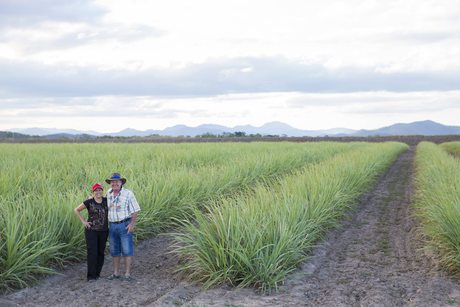How are Coca-Cola and cane farmers saving the Great Barrier Reef?

The Coca-Cola Company and its Australian bottling partner, Coca-Cola Amatil, have announced that they are on track to meet their 2020 water replenishment goal by the end of 2015.
Based on global water replenishment projects to date, Coca-Cola operations in Australia are supporting global progress towards the company’s goal to replenish 100% of the water it uses by 2020. In Australia, this progress is the result of Project Catalyst — a program which aims to test, validate and promote the rapid adoption of innovative farm practices that improve water quality from sugarcane farms impacting the Great Barrier Reef.
Project Catalyst supports a network of sugarcane farmers from the Mackay Whitsunday, Burdekin and Wet Tropics regions. By enabling sugarcane growers to develop innovative and sustainable farming practices, the program helps to reduce the level of sediment and chemical run-off from farms into river catchments that connect to the Reef.
“Part of meeting our replenishment goal is engaging in diverse, locally focused community water projects which work towards set objectives such as providing or improving access to safe water and sanitation, protecting watersheds, supporting water conservation and raising awareness on critical local water issues,” explained The Coca-Cola Company’s chief sustainability officer, Bea Perez.
“We aim to ensure those projects remain sustainable within communities over time and continue to replenish water. Our commitment to water demonstrates how investing in nature can produce very positive returns for businesses and local communities.”
As of 2014, Project Catalyst has seen the following reductions in chemical, nutrient and sediment run-off:
- Decrease of 72 t/year for particulate nitrogen
- Decrease of 34 t/year for particulate phosphorus
- Decrease of 64 t/year for dissolved inorganic nitrogen
- Decrease of 13 t/year for filterable reactive phosphorus
- Decrease of 551 kg/year for pesticide
According to Reef Catchments Manager Katrina Dent, the project has been a big success.
“Project Catalyst farmers are reducing agricultural run-off to the Great Barrier Reef by more than 180 tonnes each year and have improved soil, nutrient, pesticide, irrigation and stormwater management on over 20,000 hectares of farm land — a terrific outcome,” said Dent.
“Project Catalyst growers, who are championing this sustainable initiative, are paving the way for change, thinking outside the box and taking action, which not only generates environmental outcomes, but also increases business profitability.”
“These growers are taking responsibility and doing their part to safeguard and conserve one of the world’s natural wonders,” added WWF CEO Dermot O’Gorman. “Widespread adoption of best practice is a priority for the cane industry if we are to achieve the nutrient load reductions required to conserve the reef. Best practices such as those trialled by Project Catalyst, if widely adopted, will deliver a more efficient, profitable and sustainable cane industry.”
Berrima Cement Works upgrades with sustainable tech
Boral has unveiled new carbon-reducing technology at the site, which supplies 40% of cement in...
Australian orgs partner to speed circular economy
GS1 Australia has joined forces with the Product Stewardship Centre of Excellence to drive the...
Victorian utility recognised at Asian Water Awards
South East Water won two awards for its Hydrotrak Geofencing technology, which has helped it to...







